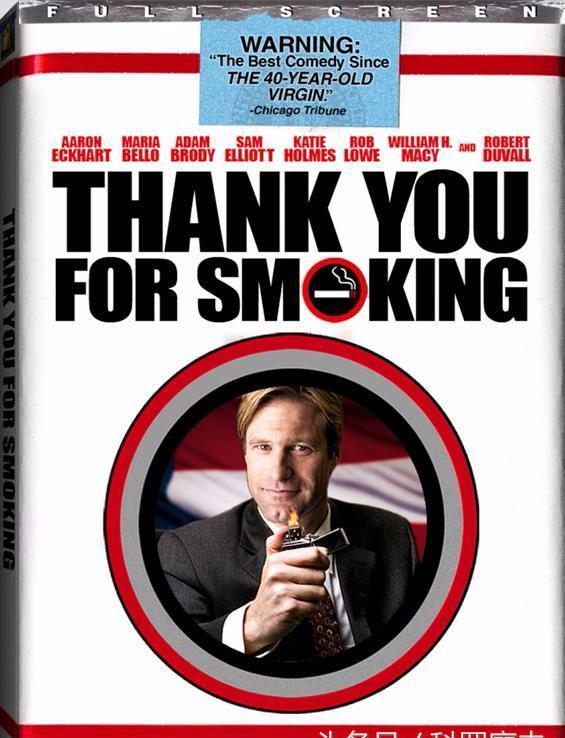I used to love Buckley's novels, and I also read the movie's novel of the same name, "Thank You For Smoking". Compared to the visually stunning Hollywood action blockbusters, I still prefer "Thank You for Smoking", which is a bit of a comedic plot film. The role of the spokesperson or lobbyist of the tobacco company's public relations consultant company in "Thank You for Smoking" is that they are often guests on TV and the media, and they have some arguments, completely standing in the perspective of interest groups, so that the interest class has the right to speak.

Nick Neller is the tobacco research association's chief spokesperson, but in fact, he is responsible for endorsing the tobacco research association's real sponsors, the tobacco industry tycoons, to help them make bigger profits. Nick's only purpose and focus of his work is to keep talking, to persuade others to smoke, to persuade all kinds of public welfare, health, government organizations and individuals who oppose smoking and try to block the profits of the tobacco industry...
The point of view he wants to express and the position he insists on is: "We have to put all kinds of pros and cons in front of people, but in the end we feel that whether it is harmful and whether to smoke should be a personal choice, and others should not interfere..."
Nick has two close friends in life, Polly, who advocates for the alcoholic beverage industry, and Bobby, who advocates for the gun industry, although the endorsement products are different but they are all life-threatening things, they get together every weekend, eat junk food in the restaurant, exchange anecdotes at work, and also give each other advice and advice on how to deal with the siege of scientists, doctors and social workers.
At this time, a group of avid healthy life advocates, along with an opportunist who is a senator, banded together to print a skull on a cigarette pack. Nick began his PR offensive, appearing on various talk shows and co-opting a Hollywood super-agent to promote tobacco culture through his film productions. All of these tricks have made Nick famous, and he has also attracted the attention of tobacco giants and reporters from the Washington Daily.
In fact, the pro-smoking senator, although singing against tobacco dealers, is actually a hypocrite, with desks full of famous wines and large cheese advertisements hanging on the walls behind him, which are not healthy but his sponsors, and he opposes smoking and supports the printing of skull logos on cigarette packs just to solicit votes.
Figures representing the interests of various classes and groups have appeared and started a battle for commercial profits. But at this point, Nick, at the heart of the war, began to worry about how his actions would affect his son Joey.
The film is adapted from the 1994 best-selling novel of the same name by author Christopher Buckley, through the interesting work and life experience of a tobacco business spokesperson for the so-called public relations culture of today's American society, Christopher's style is known for its irony and spicy, he won the 9th Thurber Humor Awards in the United States for his novel "Thank You For Smoking", Clinton and Hillary Clinton have unfortunately become the object of his ridicule.
What kind of era is this? The answer given by "Thank You for Smoking" is:
This is a golden age of advertising and public relations, an era of lack of sincerity and heavy packaging, where politicians only serve very narrow specific interests, and the media pursue profits without regard for social responsibility... While the division of labor in modern society is refined, there is also a phenomenon of professional ethics collapsing and professional ethics being lost.
Politics, businessmen, show business, the media, etc. have become the object of irony in the film, the dialogue in the film is the most brilliant, is one of the few comedies in Hollywood that has achieved a hilarious effect just by relying on language baggage, and some of the lines of the protagonist Nick are quite wonderful:
Facing lung cancer patients and viewers: "We don't want lung cancer patients to die, because then we lose a consumer, we all want them to live and continue to smoke";
Confronted by a little girl who said her mother said smoking was toxic: "If your mom says chocolate is toxic, do you believe it?" Yes, so we have to make our own judgments";
In response to a reporter's question about why he chose to promote smoking as a profession: "To control the population"